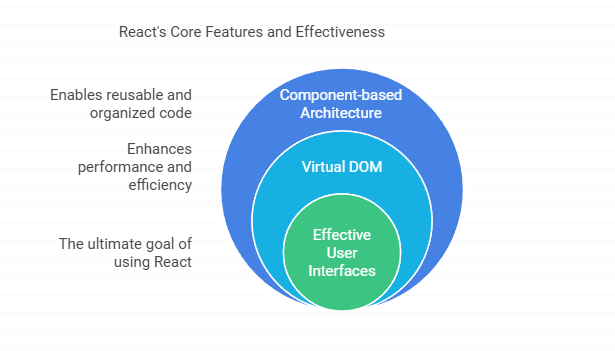Virtual Assistants: Your AI Sidekick
Picture this: a digital helper who knows your schedule, answers your questions, and might even tell a joke or two. That’s exactly what virtual assistants like Siri, Alexa, and Google Assistant are here for. These AI-powered tools are more than just voice-activated commands—they’re like having a personal assistant right in your pocket. You ask them to set reminders, play your favorite tunes, or even control your smart home gadgets, and they deliver with impressive accuracy.
Virtual assistants use something called natural language processing (NLP) to understand and respond to what you say. This means they can figure out your requests and give you answers based on what they’ve learned from you and many other users. They’re always getting smarter thanks to continuous updates and advancements in AI. So, the next time you ask your assistant to turn off the lights or check the weather, remember there’s a sophisticated AI system working behind the scenes to make it happen.
Recommendation Systems: Your Personal Shopper
Ever wonder how Netflix always seems to suggest the perfect show or how Amazon knows just what you might want to buy next? That’s the magic of recommendation systems powered by AI. These systems analyze your past behavior, preferences, and even the habits of other users with similar tastes. Then, they use this information to suggest products, movies, or music you might enjoy.
When you watch a movie on Netflix, its recommendation engine is busy at work, analyzing your viewing history and comparing it with thousands of other users. This helps Netflix recommend new shows that you’re likely to enjoy. Similarly, when you shop online, recommendation algorithms suggest products based on what you’ve looked at or bought before. This personalized approach makes your shopping and streaming experience a lot more enjoyable and tailored just for you.
Smart Devices: Making Your Home Smarter
Smart devices are another fantastic example of AI at work in our daily lives. From smart thermostats that adjust the temperature based on your preferences to smart refrigerators that suggest recipes based on what’s inside, AI is changing the way we interact with our homes. These devices learn from your habits and make adjustments to enhance your comfort and convenience.
Take a smart thermostat, for example. It doesn’t just keep track of the temperature; it learns your daily routines and adjusts itself over time. If you usually lower the heat before going to bed, it will start doing that automatically. Similarly, smart speakers can manage your entire home environment, from playing music to organizing your schedule. The more you use these devices, the better they understand your preferences, making everyday tasks smoother and more intuitive.
AI in Everyday Life: The Big Picture
AI integration into everyday technologies might sound like something from a sci-fi movie, but it’s very much a part of our daily lives now. Virtual assistants help manage your day, recommendation systems ensure you never miss out on your favorite media or products, and smart devices make your home more efficient. Each of these technologies uses AI to provide a more personalized and convenient experience.
As AI continues to evolve, we can look forward to even more seamless integration into our lives. It’s not just about having smarter gadgets; it’s about creating an environment that adapts to your needs. AI is making it easier to handle the complexities of modern life, and as these technologies advance, they promise to make our daily experiences even more enjoyable and efficient.
So, the next time you chat with your virtual assistant, appreciate a perfectly timed recommendation, or marvel at your smart home’s efficiency, remember that AI is working hard to make your life a little easier and a lot more interesting. The future is here, and it’s looking smarter than ever!
AI and Entertainment: Your Personalized Media Experience
Ever wondered how Netflix seems to know exactly what movie you’re in the mood for? It’s all thanks to AI. Imagine having a personal movie curator who understands your tastes better than you do. AI analyzes what you watch, how long you watch it, and even what genres you gravitate towards. It then suggests shows and movies that fit your unique preferences. No more scrolling endlessly—AI makes finding your next binge-watch a breeze.
Music streaming services are also getting in on the action. Platforms like Spotify use AI to create personalized playlists based on your listening habits. You’re not just getting random tracks; you’re getting a soundtrack that feels like it was made just for you. AI curates your playlists, introduces you to new artists, and keeps your musical experience fresh and exciting. It’s like having a DJ who knows your every mood and preference.
AI and Healthcare: Revolutionizing Your Wellbeing
When it comes to healthcare, AI is making big waves. Imagine having a health assistant that’s available 24/7, ready to give you personalized advice. AI-powered apps can analyze your health data, track your symptoms, and even suggest lifestyle changes. For example, if you’re feeling under the weather, AI can help you understand your symptoms and recommend when to seek professional advice. It’s like having a doctor in your pocket, without the waiting room.
AI is also transforming diagnostics and treatment. Machine learning algorithms can analyze medical images with incredible precision, often detecting issues that might be missed by the human eye. This means faster and more accurate diagnoses, which can be a game-changer in treating conditions early. Additionally, AI helps in personalizing treatments based on your genetic makeup and health history. Your treatment plan can be tailored just for you, leading to better outcomes and fewer side effects.
AI and Everyday Tasks: Simplifying Your Life
Beyond entertainment and healthcare, AI is becoming a helpful companion in everyday tasks. Smart home devices, for instance, use AI to make your living space more comfortable and efficient. From adjusting your thermostat based on your daily routine to managing your home security, these devices learn from your habits and make adjustments automatically. It’s like having a home that understands your needs and adapts to your lifestyle.
In the realm of finance, AI is making managing your money easier and more intuitive. AI-driven apps can analyze your spending habits, help you create budgets, and even offer savings tips. Imagine having a financial advisor who’s always on call, helping you make smarter financial decisions and keeping your budget in check. AI is turning complex financial management into a user-friendly experience.
AI in Communication: Changing the Way We Connect
Communication is another area where AI is making a big impact. Chatbots and virtual assistants are now common on websites and social media platforms. These AI-driven tools provide instant responses to your queries, helping you get information or resolve issues quickly. They’re available around the clock, offering support and answers without the need for human intervention.
AI is also enhancing our personal interactions through language translation. Tools like Google Translate use AI to break down language barriers, making it easier for you to communicate across different cultures and languages. Whether you’re traveling abroad or chatting with friends from different parts of the world, AI ensures that you stay connected and understood.
The Big Picture: AI’s Influence on Daily Life
AI’s influence on daily life is broad and deep, touching many aspects from entertainment to healthcare and beyond. It’s not just about having cool gadgets or apps; it’s about making your life more convenient, personalized, and efficient. AI is transforming how you interact with technology, making your experiences smoother and more tailored to your needs.
As AI continues to evolve, its role in our daily lives will only grow. It promises to bring even more innovations that will make everyday tasks easier and more enjoyable. So next time you enjoy a perfectly curated playlist, receive personalized health advice, or marvel at a smart device that seems to read your mind, remember that AI is at work, enhancing and enriching your daily experiences.
In short, AI is shaping a future where technology and daily life blend seamlessly. It’s making everything from your entertainment choices to your healthcare more intuitive and responsive, making your world just a little bit better. And as these technologies continue to advance, you can look forward to even more ways AI will make your life easier and more enjoyable.
Privacy: How Safe Is Your Data?
When it comes to AI, one major concern is privacy. You might wonder how much of your personal data these AI systems collect and what they do with it. From virtual assistants who listen to your every command to apps that track your health data, AI systems handle a lot of sensitive information. You might feel uneasy knowing that your data could be stored or shared without your explicit consent.
To address these concerns, it’s crucial to be aware of what data is collected and how it’s used. Most companies have privacy policies that detail their data practices, but they can be long and complex. Take some time to read them and understand what you’re agreeing to. Additionally, make sure to adjust your privacy settings on various platforms to control what information you’re comfortable sharing. Being proactive about your privacy helps ensure that you stay in control of your personal data.
Bias: Are AI Decisions Fair?
Another pressing issue with AI is bias. AI systems learn from data, and if that data reflects existing biases, the AI can unintentionally perpetuate them. This means that decisions made by AI, such as those related to hiring or loan approvals, could be influenced by biases present in the training data. This can lead to unfair outcomes and reinforce stereotypes or discrimination.
Addressing bias in AI requires ongoing effort and transparency. Companies need to ensure that their AI systems are trained on diverse and representative datasets. It’s also important to regularly audit AI systems for any signs of bias and make necessary adjustments. By being vigilant and advocating for fairness, you can help push for more equitable and unbiased AI technologies.
Security: How Safe Are AI Systems?
As AI becomes more integrated into daily life, security becomes a crucial concern. Smart devices and online platforms can be vulnerable to cyberattacks, potentially compromising your personal information. For instance, if a hacker gains access to your smart home system, they could control your devices or access your private data.
To protect yourself, it’s important to follow best practices for cybersecurity. Use strong, unique passwords for your devices and accounts, and enable two-factor authentication where possible. Regularly update your software and firmware to fix any security vulnerabilities. Being proactive about your digital security helps safeguard your information and ensures that your AI-powered devices remain secure.
Transparency: Understanding AI’s Decision-Making Process
One challenge with AI is understanding how decisions are made. AI systems can be complex and operate as “black boxes,” meaning their decision-making processes aren’t always clear. This lack of transparency can be troubling, especially when AI makes decisions that impact your life, such as loan approvals or medical diagnoses.
Advocating for transparency in AI development is key. Encourage companies and developers to provide explanations of how their AI systems work and how decisions are made. Clear, understandable information about AI processes helps build trust and allows you to make informed decisions about the technologies you use. It also ensures that AI systems are accountable for their actions and decisions.
Job Displacement: The Impact on Employment
AI’s rise also brings concerns about job displacement. As AI technologies advance, there’s a fear that they might replace human jobs, especially in industries involving routine or repetitive tasks. While AI can enhance productivity, it can also lead to uncertainty for workers who may find their roles evolving or disappearing.
To address this, focus on the potential for AI to create new job opportunities and career paths. Emphasize the importance of upskilling and continuous learning to stay relevant in an evolving job market. By embracing change and acquiring new skills, you can better adapt to the shifting landscape and seize the new opportunities that AI may bring.
Ethics: Balancing Innovation with Responsibility
Finally, there’s the broader ethical question of balancing innovation with responsibility. As AI technologies advance, it’s important to consider their societal impact and ensure that they’re developed and used in ways that benefit everyone. This involves not only addressing technical issues but also considering the broader implications of AI on society.
Engaging in discussions about the ethical use of AI and supporting responsible AI practices can help guide the development of technologies that align with societal values. Encourage ethical standards and practices in AI development to ensure that innovation is pursued responsibly and benefits society as a whole.
In conclusion, while AI offers incredible benefits, it’s important to address the potential issues and ethical concerns that come with it. By being aware of privacy, bias, security, transparency, job displacement, and ethical considerations, you can help shape a future where AI enhances our lives while respecting our rights and values. Embrace AI with a thoughtful approach, and together, we can navigate its challenges and harness its potential for good.
AI and Smart Homes: Living in Tomorrow’s House
Imagine a home where your AI system knows exactly how you like your morning coffee, the perfect temperature, and even your favorite TV shows. That’s not as far off as you might think. In the near future, AI could take home automation to a whole new level. Picture waking up to a house that’s already warmed up, your coffee brewing, and your day’s schedule neatly laid out—all because your AI has learned your routines and preferences.
Smart homes could evolve to become truly intuitive, understanding not just what you want, but when you want it. AI could analyze your habits, adjust settings in real-time, and even anticipate your needs before you voice them. Imagine a fridge that not only keeps track of your groceries but also suggests recipes based on what’s inside. This level of integration would make daily life smoother, more convenient, and, frankly, a little magical.
AI in Healthcare: A Personalized Health Revolution
The future of healthcare with AI is incredibly exciting. Imagine having a personal health assistant that monitors your well-being 24/7 and provides real-time advice. This could be possible with AI systems that use advanced algorithms to track your health data from wearables and medical records. Picture an AI that alerts you to potential health issues before symptoms even appear, offering tailored advice and recommendations to keep you in top shape.
AI could also revolutionize how treatments are personalized. Future advancements might allow AI to analyze your genetic information, lifestyle, and health history to craft highly customized treatment plans. This would not only make medical care more effective but also significantly reduce side effects and improve overall health outcomes. The possibilities for AI in healthcare are vast, promising a future where medical care is more precise, proactive, and personalized.
AI and Education: Personalized Learning Experiences
Think about a classroom where every lesson is tailored specifically to your learning style and pace. AI could transform education by offering highly personalized learning experiences. Imagine an AI tutor that adapts in real-time to your needs, providing additional resources when you struggle and moving faster through material you find easy. This personalized approach could help you learn more effectively and enjoyably.
In the future, AI could also assist teachers by automating administrative tasks, providing insights into student performance, and suggesting strategies to enhance teaching methods. By leveraging AI, education could become more engaging and customized, catering to each student’s unique needs and helping everyone reach their full potential.
AI and Transportation: A New Era of Mobility
Transportation is another area poised for major AI-driven changes. Imagine self-driving cars that seamlessly navigate traffic, avoiding accidents and optimizing routes to get you where you need to go faster. Future advancements could make autonomous vehicles a common sight, transforming how we travel and potentially reducing traffic congestion and accidents.
Public transportation might also benefit from AI, with smart systems that adjust routes and schedules based on real-time data, making commuting more efficient. Imagine a world where AI manages your travel plans, books your tickets, and ensures you get to your destination with minimal hassle. The future of transportation with AI could be more efficient, safer, and tailored to your needs.
AI and Personal Finance: Smarter Money Management
Managing your finances could become much easier with AI’s help. Imagine an AI system that analyzes your spending habits, predicts future expenses, and offers personalized budgeting advice. It could alert you to opportunities for saving and investing based on your financial goals and current market trends.
AI could also automate routine financial tasks, such as paying bills and managing investments, freeing you from the stress of financial management. By integrating AI into personal finance, you could gain better insights into your financial health, make smarter decisions, and achieve your financial goals with greater ease.
AI and Social Interaction: Enhanced Communication
AI could also reshape how we interact with each other. Imagine AI-powered tools that facilitate more meaningful conversations by translating languages in real-time, analyzing emotional tones in messages, or even helping you craft thoughtful responses. Future advancements could make communication across cultures smoother and more nuanced.
Social media platforms might use AI to enhance connections, suggesting content and interactions that truly resonate with your interests and relationships. AI could help filter out noise and bring you closer to the people and topics that matter most, enriching your social experiences and making online interactions more fulfilling.
The Big Picture: A Future Shaped by AI
The future of AI is incredibly promising, with the potential to transform every aspect of our daily lives. From smart homes and personalized healthcare to customized education and smarter transportation, AI could make life more convenient, efficient, and enjoyable. As these technologies continue to advance, they promise to enhance our daily experiences in ways we’re only beginning to imagine.
So, as you look ahead, embrace the exciting possibilities AI has to offer. Whether it’s a smarter home, a more personalized health experience, or easier communication, AI is set to make our lives richer and more connected. The future is bright, and AI is leading the way to a world where technology and everyday life blend seamlessly, making everything just a little bit better.
The post AI in Everyday Life: Practical Uses and Future Potential appeared first on Bharat Hive.




